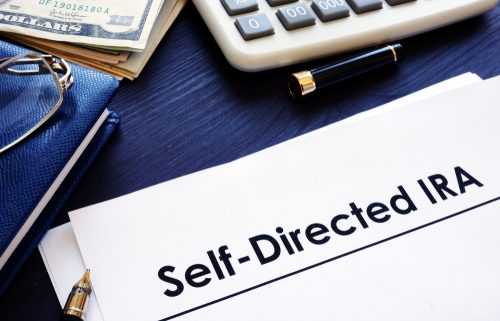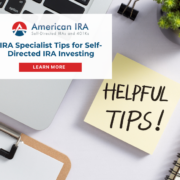What to Avoid When Using Self-Directed IRAs
Using a Self-Directed IRA is a decision that comes with lots of benefits. Not only does it mean that you can access retirement benefits via tax protections, but it means that you can use these tax benefits toward a wider range of potential retirement assets. Is there a catch? Well, being in charge of a Self-Directed IRA does mean that you’ll be making your own decisions. This, in turn, means that you have to be aware of what you can’t do with Self-Directed IRAs. To that end, we’ve put together a brief primer so you can better understand the rules and know what to avoid.
Avoid Disqualified Persons: A Key Fact in Self-Directed IRAs
Although Self-Directed IRAs afford their investors with plenty of freedom for choosing from a wide range of retirement assets, this ability is not unlimited. In fact, the key distinction for any Self-Directed IRA—or any IRA, for that matter—is to make sure that the tax-advantaged accounts do not overlap with an individual’s personal investments. This ensures that the retirement assets remain exactly that: assets stocked away for retirement, not investments that create personal benefits in the here and now.
The key to making sure this doesn’t happen is to keep the assets within an IRA. From there, the investor should be careful not to interact with disqualified persons. Disqualified persons can be a spouse, a family member, or a close associate. For example, an investor should not loan money from an IRA to someone they know, such as a brother or a sister. To do so would yield the investor an immediate personal benefit. And doing so, in the eyes of the government, would be to take an early distribution from the account, which means that the investor is liable for fees and taxes on the money transacted.
Understanding Prohibited Transactions
A transaction in which your IRA works with a disqualified person would be, for the reasons stated above, prohibited. That can include buying and selling, renting out a piece of property, or loaning money to a disqualified person—though the list is not necessarily limited to these transactions. The easy way to think about it is to avoid any transaction between your Self-Directed IRA and someone you suspect may be a disqualified person in relation to your retirement account.
The truth is, every retirement account has these same stipulations. However, you might not have run into this concept before if you haven’t used a Self-Directed IRA. Every retirement account has to avoid transacting with prohibited persons—but with an IRA that’s through a traditional brokerage firm, for example, you’re never in any danger of transacting with prohibited persons. With a Self-Directed IRA and the increased responsibility you take on in managing it, you do have to be aware of these rules. In other words, these aren’t unique rules to the Self-Directed IRA, but rather universal retirement rules that you have to be aware of when you use self-direction.
Fortunately, the process of self-direction is much more intuitive than you might think. Rules like these are easy to follow and shouldn’t get in the way of you exercising plenty of investing freedom through a Self-Directed IRA. The question is, how do you work with a Self-Directed IRA administration firm that can help you with issues like paperwork and administration? That’s where we come in.
Interested in learning more about Self-Directed IRAs? Contact American IRA, LLC at 866-7500-IRA (472) for a free consultation. Download our free guides or visit us online at www.AmericanIRA.com.







